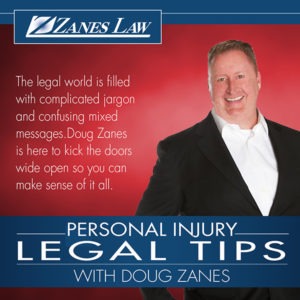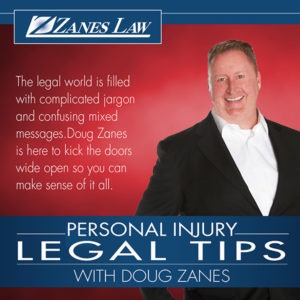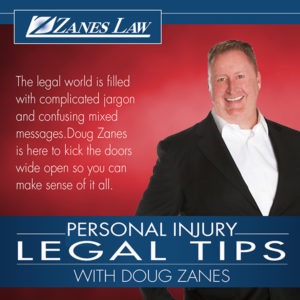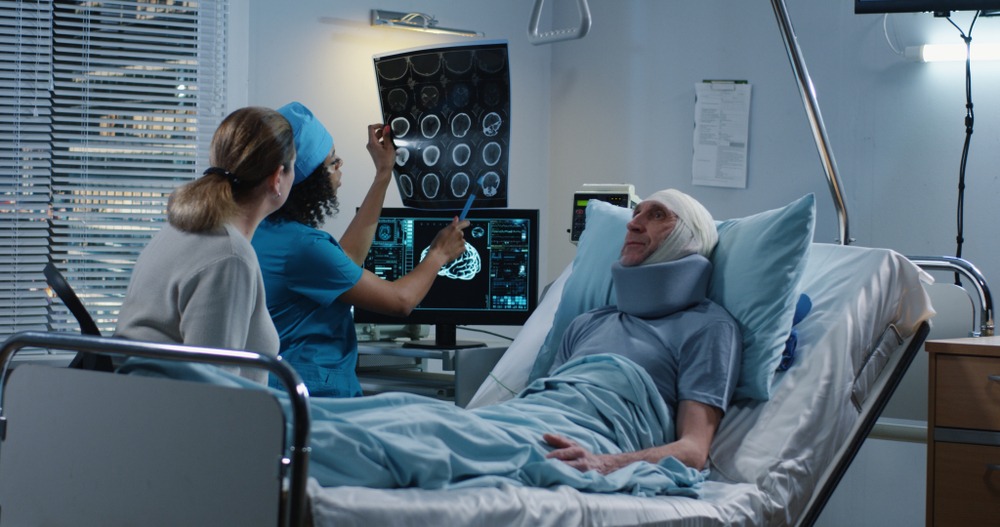![]() Contact Us (866) 499-8989
Contact Us (866) 499-8989
Difference Between Professional and Expert Witness
- Key Takeaways
- What Are the Differences in Qualifications and Credentials of a Professional and Expert Case Witness?
- What does a Professional Witness Do?
- What does an Expert Witness Do?
- What to Expect from a Professional and Expert Witness in Court
- How do Admissibility and the Weight of Witness Testimony Impact a Case?
- How do You Know Which Type of Witness Is Needed for Your Case?
- How an Attorney Chooses Between an Expert Witness or a Professional
- Home
- FAQs
- Personal Injury
- Difference Between Professional and Expert Witness
Are you confused about the difference between professional and expert witnesses? Look no further. The Phoenix personal injury lawyers at Zanes Law have you covered. From this article, you’ll learn the qualifications, scope of knowledge, role in court, and impact on the outcome of a case for both types of witnesses.
We aim to provide a clear understanding of the distinctions between a professional and an expert witness so that you are better equipped to navigate the legal landscape. Both play crucial roles in the success of any case, and our contingency-fee-based law firm will cover the cost of any expert who will help your case until a settlement is reached.
Find out if your case requires an expert or professional witness, and connect with us during a free consultation if additional information is needed.
Key Takeaways
- Professional witnesses rely on their experience in a specific field, while expert witnesses possess specialized knowledge or skills.
- Expert witnesses have advanced degrees, certifications, or extensive research, providing credibility and assurance.
- Professional witnesses thoroughly understand the subject matter, possess specialized insights and opinions, and are well-versed in theories, principles, and practices.
- Testimony from professional and expert witnesses can sway the judge and jury based on credibility, expertise in a relevant field, persuasive presentation, and emotional appeal.
For a free legal consultation, call (866) 499-8989
What Are the Differences in Qualifications and Credentials of a Professional and Expert Case Witness?
The qualifications and credentials of a case witness are key when distinguishing between a professional witness and an expert witness.
Professional Witness
A professional witness with experience in a specific field, such as law enforcement or medicine, is important. Their expertise is derived from their professional background, which allows them to provide insights based on firsthand knowledge and experience.
Expert Witness
On the other hand, an expert witness goes beyond professional experience. To be considered an expert, one must possess specialized knowledge or skills that aren’t commonly known to the average person. This could include advanced degrees, certifications, or extensive research in a particular field.
Their qualifications and credentials as expert witnesses provide credibility and assurance that their testimony is based on sound knowledge and expertise, making their role invaluable in legal proceedings.
What does a Professional Witness Do?
The biggest difference between a professional witness and an expert witness, aside from qualifications, would be what they are designated to do in court. A professional witness focuses on persuasion through testimony rather than impartial expertise. Attorneys generally retain them to provide favorable testimony, such as from a police or medical examiner.
The overall goal of having a professional witness testify for a case is to have their interpretation of evidence support the attorney’s theory and serve as a persuasive influence.
Click to contact our personal injury lawyers today
What does an Expert Witness Do?
Attorneys vet an expert witness to testify because they serve to provide an understanding of technical evidence. Their expertise in a subject matter provides a solid opinion to help judges and juries comprehend findings. Often, this includes a doctor explaining medical information or engineers discussing product defects.
The unbiased opinion of an expert witness strengthens the attorney’s argument by lending credibility rather than persuading.
Complete a Free Case Evaluation form now
What to Expect from a Professional and Expert Witness in Court
It’s important for witnesses to execute their roles properly in court, as misconduct could impact the success of a case. In court, both professional and expert witnesses are responsible for the following:
- Maintaining credibility: Leading with professionalism and integrity is vital when testifying. Witnesses are expected to always be honest and transparent about their qualifications, experience, and opinions.
- Being thoroughly prepared: Each is expected to take the time needed to review all relevant documents and evidence before testifying. This will ensure that they can provide accurate and informed opinions.
- Staying composed: The courtroom can be an intense environment. It’s important that the witnesses remain calm and composed, even under cross-examination. This will help maintain their credibility and prevent emotions from clouding anyone’s judgment.
- Communicating effectively: Using clear and concise language to explain complex concepts is critical. Helping others understand the formality of different things will complement the litigation skills of the attorney.
How do Admissibility and the Weight of Witness Testimony Impact a Case?
In Daubert v. Merrell Dow Pharmaceuticals in 1993, the U.S. Supreme Court established a precedent regarding the admissibility of expert witness testimony. The Daubert standard established that when expert testimony is presented, the judge must ensure:
- The expert’s scientific technique or theory can be or has been tested
- The technique or theory has been published and subjected to peer review
- There is a known potential rate of error involved with the technique
- The theory or technique enjoys widespread acceptance within the relevant scientific community
This standard supersedes the prior Frye standard, which has been in use since the 1920s. Judges can now employ a more thorough framework to assess whether an expert witness’ testimony is supported by scientifically sound reasoning and methodology before permitting it to be given to the jury.
The intention is to guarantee that expert opinions are consistent with scientific consensus and to avoid junk research or inaccurate science from excessively affecting judicial decisions. Numerous state courts have since also embraced the Daubert standard. Therefore, once the testimony is admitted, its weight becomes relevant and can make or break a case.
How do You Know Which Type of Witness Is Needed for Your Case?
Determining the type of witness needed for your case requires careful consideration of the differences between a professional and expert witness in light of the specific circumstances and legal requirements of your case. Here are some steps to help you identify the appropriate type of witness for your case:
Understand the Nature of Your Case
Assess the nature of your legal matter, including the subject matter, complexities, and issues involved. Identify the key facts and elements that need to be established or challenged.
Identify the Relevance of Testimony
Determine the type of information or expertise that will be most beneficial to support your position or challenge the opposing party’s claims. Consider whether the testimony required is more factual or requires specialized knowledge and opinions.
Evaluate the Legal Standards
Familiarize yourself with the legal standards and rules governing witness testimony in your jurisdiction. Understand the criteria for qualifying as a professional or expert witness and the admissibility standards for their testimony.
Consult with Your Attorney
Seek advice from a personal injury law firm if you’ve been injured and need expert help. They will have the expertise and knowledge to assess your case, identify the crucial issues, and determine the type of witness that would be most effective for your specific situation.
How an Attorney Chooses Between an Expert Witness or a Professional
When an attorney is deciding between an expert witness and a professional witness for a case, several factors come into play. The following considerations can influence their decision:
- The complexity of the subject matter: If the subject matter of your case involves technical, scientific, or specialized knowledge, an expert witness may be necessary to provide opinions and interpretations based on their expertise. If the matter primarily relies on factual information, a professional witness who can provide firsthand knowledge or observations may be more appropriate.
- The potential impact: A reputable trial attorney will evaluate the potential impact that different types of witnesses can have on your case. They will take into account each type of witness’s credibility, qualifications, and persuasiveness, as well as how the judge or jury might react to their testimony.
- Cross-examination preparation: A skilled lawyer will anticipate potential challenges and weaknesses in the testimony of the chosen witness. Work with your attorney to prepare for cross-examination and address any potential issues that may arise.
Connect with an experienced lawyer who knows the difference between what a professional and an expert witness can bring to your case and will employ one that maximizes the amount of your settlement.
Call or text (866) 499-8989 or complete a
Free Case Evaluation form
 Injury Lawyer Doug Zanes Interviewed For “Business Leader Spotlight”
Injury Lawyer Doug Zanes Interviewed For “Business Leader Spotlight”
Doug was recently interviewed by Randy Van Ittersum on the "Business Leader Spotlight Show." It was a great experience and gave him the opportunity to share important topics that are super
 Need Personal Injury Legal Advice? Listen to Our NEW Podcast by Doug Zanes!
Need Personal Injury Legal Advice? Listen to Our NEW Podcast by Doug Zanes!
We are excited to announce that we have officially launched the Zanes Law Personal Injury Legal Tips podcast, featuring advice from Zanes Law owner and responsible attorney Doug Zanes. When
 Should you hire an injury attorney? 5 Things You Need to Know
Should you hire an injury attorney? 5 Things You Need to Know
We know that when you’ve been injured in an accident, it can be difficult to take legal action quickly. After an accident, you might just want everything to be over and done with, so you
 Can I Settle An Injury Claim On My Own?
Can I Settle An Injury Claim On My Own?
Nobody expects to be in an accident—let alone get injured in an accident—but when it does happen, you may be asking yourself a lot of questions, including, “Can I settle an injury claim on my
Receive a Free, No-Obligation, Case Evaluation Now



